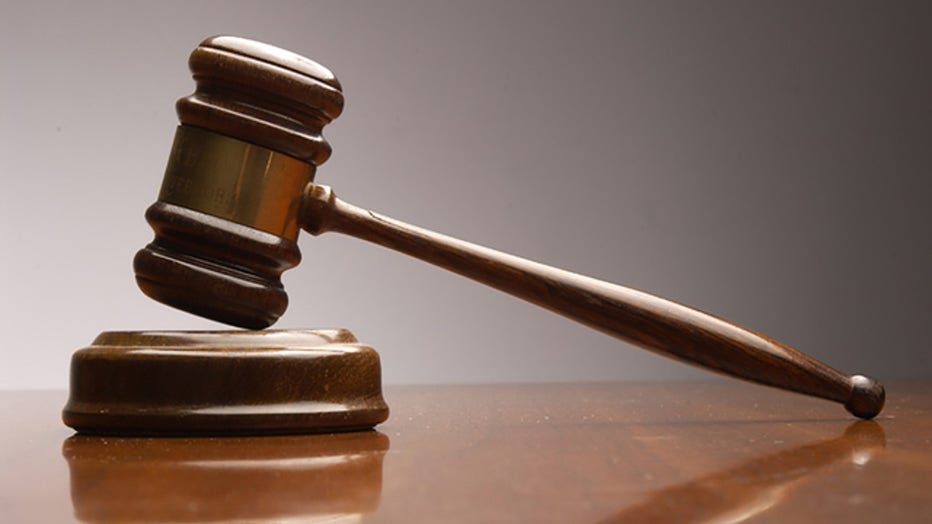California rule addressing 'unconscious bias' will make it tougher for lawyers to remove prospective jurors
Jury selection in California is about to get more complicated, with a new rule going into effect in the new year that will make it more difficult for attorneys to strike prospective jurors from the jury pool out of concern that too many are acting based on bias.
RELATED: New California laws that take effect January 2022

Typically, each side is allowed a certain number of "peremptory" strikes, meaning they can eliminate a juror without giving a reason, but the Supreme Court's decision in Batson v. Kentucky prohibited the use of such strikes to remove prospective jurors due to their race.
California's new rule – the latest in a growing trend of jury selection reform – extends to "conscious or unconscious bias" against several other protected classes. It allows opposing counsel to challenge peremptory strikes and takes Batson much farther, attributing bias to many reasons an attorney could give to justify their decision.
"A peremptory challenge for any of the following reasons is presumed to be invalid unless the party exercising the peremptory challenge can show by clear and convincing evidence that an objectively reasonable person would view the rationale as unrelated to a prospective juror’s race, ethnicity, gender, gender identity, sexual orientation, national origin, or religious affiliation, or perceived membership in any of those groups, and that the reasons articulated bear on the prospective juror’s ability to be fair and impartial in the case," the rule states before listing 13 potential grounds for striking a juror that it assumes to be rooted in bias.
Those include striking a juror due to them "[e]xpressing a distrust of or having a negative experience with law enforcement or the criminal legal system" or "a belief that law enforcement officers engage in racial profiling or that criminal laws have been enforced in a discriminatory manner."
The rule also opposes dismissing jurors for "[h]aving a close relationship with people who have been stopped, arrested, or convicted of a crime," for having children out of wedlock, not being a native English speaker, their dress or personal appearance, lack of employment, receiving government benefits, and more.
The rule applies to cases where jury selection begins on or after Jan.
Get your top stories delivered daily! Sign up for FOX 11’s Fast 5 newsletter. And, get breaking news alerts in the FOX 11 News app. Download for iOS or Android.
California is not the first to take such action, and it will likely not be the last. The rule is based on Washington State's General Rule 37, which has a stated objective of challenging "improper bias" in jury selection. Both California and Washington allow not just opposing counsel but the court to challenge peremptory strikes for this reason.
"This groundbreaking rule for jury selection will reduce the damage done by racial and ethnic bias to the integrity of our judicial system and to communities of color," ACLU-Washington senior staff attorney Nancy Talner said when her state’s rule was adopted in 2018.
Arizona has gone even further, completely eliminating peremptory challenges with a rule of their own that takes effect when the new year begins.
Connecticut, Kansas, Massachusetts, New Jersey, New York, North Carolina, Oregon and Utah have all considered rules like Washington's or abolishing peremptory strikes like Arizona, but they have not reached a definitive conclusion.
Colorado’s Supreme Court rejected adopting such a Washington-like rule.
While all the states considering or adopting such rules cite the interest of combating explicit or implicit bias in jury selection, New Jersey criminal defense attorney and former Morris County head prosecutor Bob Bianchi believes that restrictions on peremptory challenges fail to take into account the "reality of the courtroom and hamper attorneys’ – and their clients’ – abilities to select impartial juries.
Bianchi is on a New Jersey Bar Association committee that is opposing efforts to eliminate or severely limit peremptory challenges in his state. Addressing the new California law, Bianchi said he actually agrees that most of the reasons for striking a juror that are presumed to be biased have no place in trying to find an impartial jury. He does, however, take issue with the idea that it is presumed to be improper to strike a juror based on negative experiences or feelings toward law enforcement, but not positive ones.
"What does this really mean? If a person indicates they hate the police and don’t trust a word they say, that person cannot be removed? Isn’t that a bias against the State?" he asked. "And, why is it not balanced to include those that have a positive experience with cops or the justice system?"
Having a system designed to keep those with negative views of law enforcement without the same treatment for those with positive views, Bianchi said, "is inherently unfair and unbalanced on its face and defies common sense," and "specifically prohibits things in favor of the defense only."
Bianchi recognized that allowing attorneys to explain their reasoning if their peremptory strike faces an objection helps mitigate the problem.
"But, I don’t think we should have to do that with preemptory challenges," he said. Bianchi also noted that "knowing judges, most times a lawyer will be unable to meet the burden of winning by the clear and convincing standard."
While believing that these rules lean in favor of the defense, Bianchi also pointed out that it strips some of the little power a defendant might have during their trial.
"This stage of the proceeding is the only time a defendant has a meaningful opportunity to participate on who a jury of their peers will really be," he said. "If a client says ‘strike that person,’ are we now required to have the client who has a right to remain silent disclose their reasoning?"
Get updates on this story at FOXNews.com.
Tune in to FOX 11 Los Angeles for the latest Southern California news.

